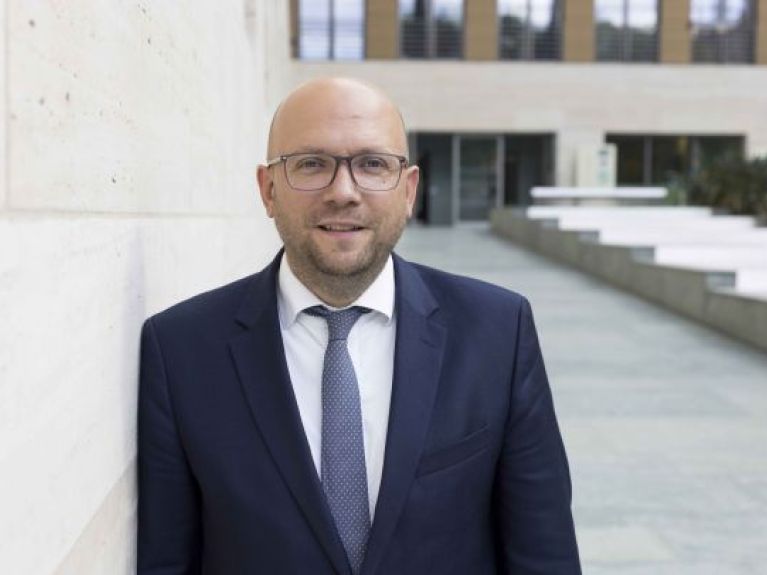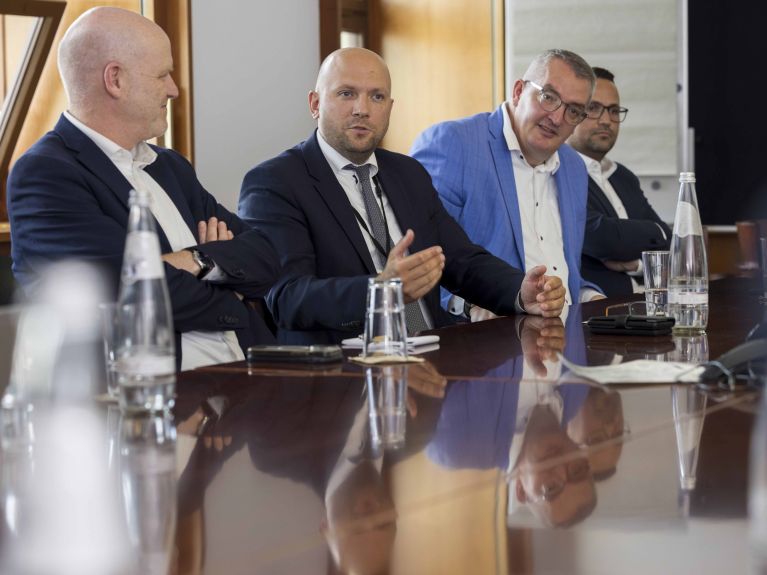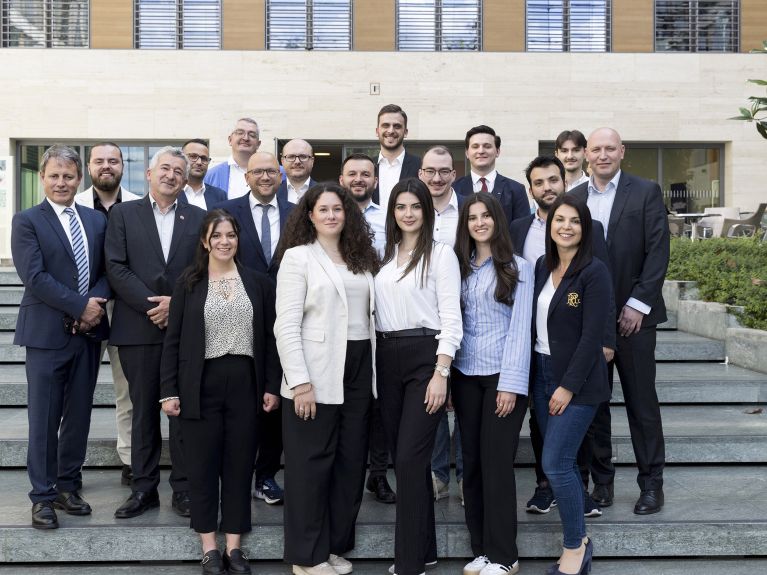“Come back and then come back again, building up trust”
In his capacity as the German government’s special representative for the countries of the Western Balkans, Manuel Sarrazin works tirelessly to bring the region closer to EU membership.

Why is it taking so long? This is a question that Manuel Sarrazin, the German government’s special representative for the countries of the Western Balkans, is frequently asked. What is meant is the EU accession of Albania, Bosnia and Herzegovina, Kosovo, Montenegro, North Macedonia and Serbia. “This has been promised for 20 years. But little has happened so far. To be honest, we get the impression that the EU just wants to sit it out,” says Muhamet Idrizi, the first chairman of Oda e. V., an organisation of German-Albanian academics from Hamburg. Together with a group of 30 representatives of the Kosovo-Albanian diaspora from all over Germany, he is visiting the Federal Foreign Office to discuss the situation with Sarrazin. Many of those present are concerned about the region, and especially about the latest tensions between Serbia and Kosovo. Niels von Redecker, head of the Western Balkans division at the Federal Foreign Office, will also be attending the meeting.
Idrizi knows Sarrazin from the time when he was still an MP. From 2008 to 2021, Sarrazin held a seat for The Greens in the Bundestag and made a name for himself as a Balkans expert. The mood at the meeting is cordial but also insistent. Idrizi explains that they want to take the opportunity to do some straight talking so as to understand the complex rationale behind the current Western Balkan policy of Germany and the EU. And the more concrete information they can obtain, the better. “Why exactly did Kosovo’s membership of the Council of Europe fail?” asks a young man, for example. In April 2024, the Parliamentary Assembly of the Council of Europe had recommended Kosovo’s membership with a large majority. Although the parliamentarians had hoped that a large majority of the member states of the Council of Europe would vote in favour of Kosovo’s admission at the Ministerial Conference in May, this turned out not to be the case. “We found this a great pity and didn’t really understand how it could have happened.”

Hybrid diplomacy
Sarrazin is briefly silent, looks highly concentrated and then begins to give such a nuanced reply that it becomes quite clear why the German government has felt it worth funding a dedicated special representative for a region of approximately 17 million inhabitants - a post that had previously not even existed in this form. Sarrazin knows the Balkans very well, travels constantly around the region and is in close contact with all its heads of government. His status gives him special scope for action. “I can negotiate over a comma in a treaty or indeed engage in diplomacy at the highest level.” He describes his remit as “hybrid diplomacy”, a role that is somewhere between politics and diplomacy. “I can also make three follow-up visits within a month if it will help the cause in question. I act so to speak as a kind of extended calendar of the chancellor and foreign minister.”
Berlin Process
Sarrazin believes that the countries of the Western Balkans belong in the EU, despite certain problems. “I have a mandate to help bring the region closer to the EU.” One part of this is the Berlin Process, an initiative launched by Germany in 2014 that aims primarily to improve regional economic cooperation. “We want to give people the opportunity to experience some of the benefits of the EU in their everyday lives. One way we are doing this is by creating a common regional market for goods, services, capital and people that is being brought gradually closer to the European single market,” explains Sarrazin.
This also includes three mobility treaties, signed by the countries of the Western Balkans in 2022, providing for the reciprocal recognition of identity cards and university and professional qualifications. “That was one of my first assignments,” recalls Sarrazin. “At the time, there was a rumour that one of the key political actors in the region was dubious about one of the agreements. So I travelled there to meet him. Politics in the Western Balkans is very much dominated by individuals. Indeed, one of the most underestimated aspects of politics is the importance of one-to-one talks.”

Tenacity is also part and parcel of this. If necessary, Sarrazin will meet the same head of government three or four times in the space of just a few weeks. “Come back and then come back again, building up trust - that’s really important in this region.” And Sarrazin also attempts in his discussions to convey a “new standard of communication about Germany” to the countries, as he puts it. For example: on 6 April 2024 he was in Belgrade for the second time to mark the 83rd anniversary of the destruction of the city’s Old National Library by German bombs criminally dropped during the Second World War. “We try to proactively address such difficult topics and serve as an example in promoting a culture of remembrance. This is also an attempt to take the wind out of the sails of Russian propaganda. All media reported on it, even pro-Russian websites and broadcasters.”
No EU geopolitics without the Western Balkans
Why is it so important for the Western Balkans to join the EU? Sarrazin makes it quite clear: “This is a region that is very close to us in human and cultural terms. It cannot be our goal for it to remain outside the European order.” Not to mention the increased importance of a common geopolitical strategy in the EU. In 2021, Sarrazin and Economics Minister Robert Habeck met with the Ukrainian President Volodymyr Zelenskiy. “He asked us how he could have any hope of Ukraine joining the EU if not even North Macedonia could manage it. I believe that’s a good example of how an EU that acts with geopolitical credibility is only conceivable if we successfully integrate the Balkans.”


